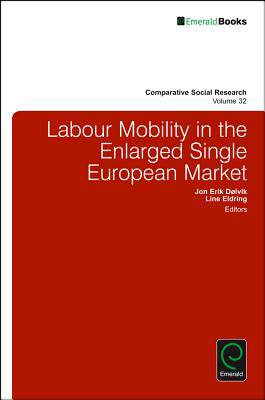
- Afhalen na 1 uur in een winkel met voorraad
- Gratis thuislevering in België vanaf € 30
- Ruim aanbod met 7 miljoen producten
- Afhalen na 1 uur in een winkel met voorraad
- Gratis thuislevering in België vanaf € 30
- Ruim aanbod met 7 miljoen producten
Zoeken
Labour Mobility in the Enlarged Single European Market
€ 260,95
+ 521 punten
Omschrijving
The 2004 reunification of Eastern and Western Europe and the subsequent economic crisis caused a surge in intra-European labour mobility and a profound shift in preceding patterns of migration in Europe. While previous decades of European integration brought very modest cross-border flows of labour, the past decade has engendered the largest European movements of labour in modern time - mostly from East to West, but eventually also from South to North. In a situation of record high European unemployment, this has sparked controversy about the very notion of free movement, one of the basic foundations of the European Community, and has unleashed heated debates about the conditions, causes, and consequences of large-scale labour migration for receiving as well as sending societies. Against this background, this volume of Comparative Social Research will contribute to improve our understanding of the drivers, mechanisms, and effects of the past decade's surge in cross-border labour mobility and work related migration within Europe.
Specificaties
Betrokkenen
- Uitgeverij:
Inhoud
- Aantal bladzijden:
- 256
- Taal:
- Engels
- Reeks:
- Reeksnummer:
- nr. 32
Eigenschappen
- Productcode (EAN):
- 9781786354426
- Verschijningsdatum:
- 22/11/2016
- Uitvoering:
- Hardcover
- Formaat:
- Genaaid
- Afmetingen:
- 157 mm x 231 mm
- Gewicht:
- 544 g

Alleen bij Standaard Boekhandel
+ 521 punten op je klantenkaart van Standaard Boekhandel
Beoordelingen
We publiceren alleen reviews die voldoen aan de voorwaarden voor reviews. Bekijk onze voorwaarden voor reviews.






